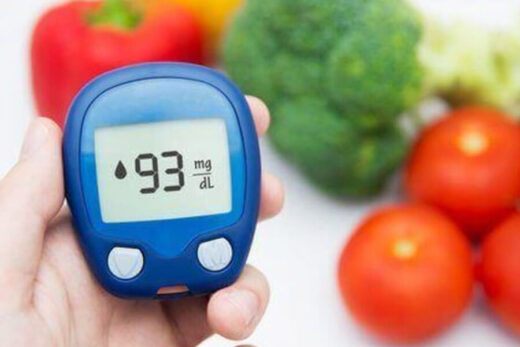Blood sugar levels also known as blood glucose play a central role in your health. Whether you’re living with diabetes, managing your weight, or simply aiming to live a healthier life, understanding how your blood sugar fluctuates and what those numbers mean can help you take better control of your well-being.
At Erdem Hospital, with 37 years of experience in evidence-based, patient-centered care, we believe that medical knowledge should be empowering. Here’s what you need to know about blood sugar levels, how to measure them accurately, and why they matter more than you might think.
What Is Blood Sugar?

Blood sugar refers to the concentration of glucose in your blood. Glucose is your body’s primary source of energy, and it comes mainly from the carbohydrates in your food. After you eat, your digestive system breaks down these carbohydrates into glucose, which then enters your bloodstream. Insulin, a hormone produced by the pancreas, helps move this glucose into your cells for energy or storage.
Why Is It Important to Monitor Blood Sugar?
When blood sugar levels are too high or too low, it can disrupt your body’s normal functions. Over time, imbalanced blood sugar can lead to serious complications such as cardiovascular disease, nerve damage, vision problems, kidney disease, and more.
People with diabetes monitor their blood sugar regularly to keep it within a target range and avoid these complications. However, even people without diabetes can benefit from understanding how food, stress, sleep, and physical activity affect glucose levels.
What Are Normal Blood Sugar Levels?
Normal blood sugar values vary slightly depending on the time of day and when you last ate. Here are the general guidelines for adults without diabetes:
- Fasting (before eating, typically in the morning):
70–99 mg/dL (3.9–5.5 mmol/L) - 1–2 hours after a meal (postprandial):
Less than 140 mg/dL (7.8 mmol/L) - Random (any time of day):
Below 200 mg/dL (11.1 mmol/L) is typically expected, but lower is generally better
For individuals with diabetes, target ranges may be different and should be personalized by a healthcare professional.
What About HbA1c?
In addition to daily readings, your doctor may use a test called HbA1c, which reflects your average blood sugar level over the past 2–3 months. It’s especially useful in diagnosing diabetes or monitoring long-term control.
- Normal HbA1c: Below 5.7%
- Prediabetes: 5.7% to 6.4%
- Diabetes: 6.5% and above
Even small improvements in your HbA1c can significantly reduce your risk of long-term complications.
How to Measure Blood Sugar Accurately
There are two main ways to monitor blood sugar:
1. Self-Monitoring with a Glucometer
Finger-prick devices (glucometers) are commonly used at home. You’ll need test strips and a small drop of blood from your fingertip.
Tips for accuracy:
- Wash your hands before testing
- Use fresh strips and store them properly
- Keep a log of your readings, noting meals and medications
2. Continuous Glucose Monitoring (CGM)
This involves a small sensor worn on the skin that records glucose levels throughout the day. It’s especially useful for people with Type 1 diabetes or those who need to monitor fluctuations more closely.
What Affects Blood Sugar Levels?
Many factors influence your glucose readings, including:
- Diet: Foods high in carbohydrates can cause spikes
- Physical Activity: Exercise generally lowers blood sugar
- Stress: Emotional or physical stress can raise glucose
- Sleep: Poor sleep may affect insulin sensitivity
- Medications: Especially insulin or blood sugar-lowering drugs
It’s important to look at trends rather than isolated readings. A single high or low number doesn’t always indicate a problem.
What Are the Symptoms of High and Low Blood Sugar?
Understanding symptoms can help you act quickly:
- High Blood Sugar (Hyperglycemia)
Symptoms: Increased thirst, frequent urination, fatigue, blurred vision
If left untreated, it can lead to diabetic ketoacidosis or long-term complications. - Low Blood Sugar (Hypoglycemia)
Symptoms: Sweating, shakiness, irritability, confusion, dizziness
This is particularly dangerous and needs immediate attention usually a quick sugar source like juice or glucose tablets.
When to See a Doctor
If you experience frequent highs or lows, or if your readings don’t match how you feel, it’s time to speak with a healthcare professional. Early detection and management of blood sugar irregularities can prevent the development of type 2 diabetes and other metabolic disorders.
At Erdem Hospital, we offer personalized endocrinology and internal medicine services to help patients of all ages manage their health. Whether you’re newly diagnosed, at risk, or simply want to better understand your numbers, our team is here to guide you every step of the way.
Your Health, Your Numbers
Knowing your blood sugar levels is more than just checking a number it’s about understanding your body’s signals. With the right tools, habits, and support, you can maintain a balanced lifestyle and reduce your risk of future complications.
Let Erdem Hospital be your partner in preventive care. With over 37 years of experience, we provide comprehensive diagnostics and ongoing support to help you live well today and in the years to come.